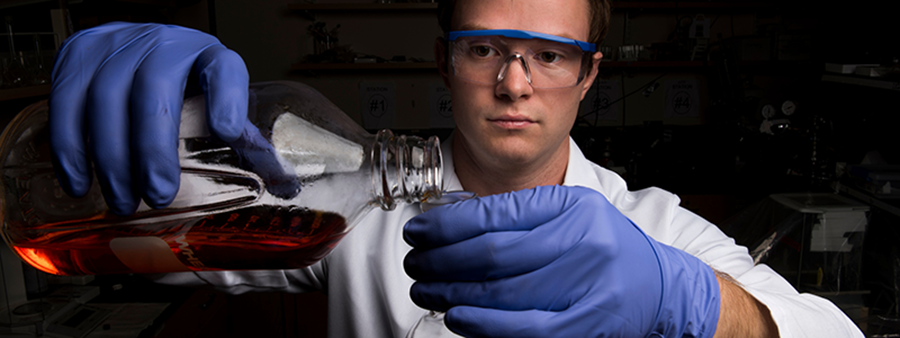Research

Materials for Energy and Sustainability
Research programs in this area seek to find solutions to some of the most pressing technological challenges in creating a sustainable future through synthesis, characterization, and modeling of novel materials and devices for clean energy and environmental applications. Research programs include: atomic scale design and analysis of metal-oxide catalysts for enhanced reactivity and selectivity, optoelectronic and electrochemical devices for solar power conversion and storage, polymeric membranes for energy-efficient, smart filtration, and rational design and investigation of materials via a computational multi-modal approach.
Labs:
- Green Energy and Novel Electrolytes
- Eagan Sustainable Catalysis Laboratory
- Leverick Lab
- Smart Polymers, Membranes, and Separations Laboratory
- Tufts Epsilon Materials Institute
Faculty
Cell and Biomolecular Engineering
Research programs in this area tackle a variety of problems in biomedicine and biotechnology. Our thematic focus is to understand and manipulate biological molecules and cells as parts of natural or built systems, bringing to bear methods and principles from engineering as well as the life sciences. Systems of interest encompass: engineered tissues relevant to human disease, microbial hosts for production of value added biomolecules, and smart biopolymer-based functional microparticles for biosensing and tissue engineering.
Labs
- Nanobiofabrication
- Synthetic and Systems Bioengineering
- Stem Cell and Tissue Engineering
- Tissue and Metabolic Engineering
- Van Deventer Lab
Faculty
Systems and Process Modeling
Faculty research in this area deals with quantitative analysis and design of chemical and biochemical processes. The thematic focus is on developing models to describe, control and optimize process dynamics and outcomes. Methodologies of interest are: mechanistic modeling grounded in transport phenomena, statistical design of experiments, model-predictive control, data processing and dimensionality reduction, data-driven models, and parameter estimation for non-linear models. Application areas broad, and include: carbon dioxide capture, plant-wide control, materials processing, and production of biologics from fed-batch cultures of mammalian cells.